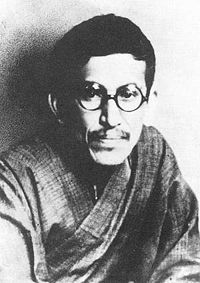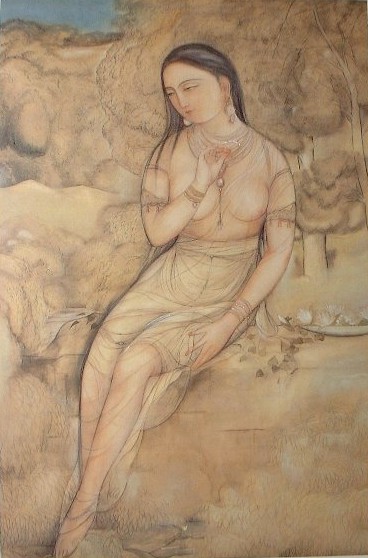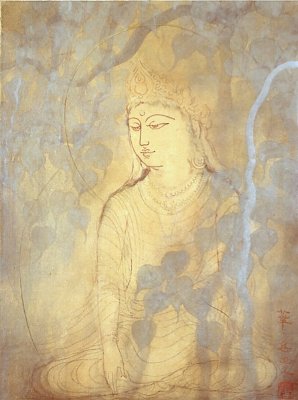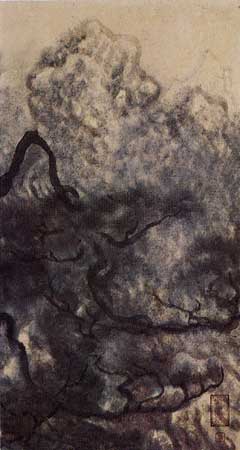Biography of Japanese Painter
Murakami Kagaku (1888 - 1939)

Japanese-style painter who is well-known for his Buddhist-themed paintings, flourished between the Taisho and Showa eras.
Kagaku was born in Osaka in the 21st year of the Meiji era as Takeda Shinichi.
(Kagaku is his pseudonym.)
In his early days, due to a family crisis, Kagaku was left in the care of his aunt who lived in Kobe.
When he was 13 years old, his father died, and, his mother got remarried and went missing.
Three years later, the Takeda family was abolished and Kagaku (Shinichi)
changed his surname from Takeda to his aunt's surname "Murakami".
In 1903, he entered the Kyoto-Shiritsu Bijutsu Kogei Gakko ( Kyoto City School of Arts and Crafts), and, graduated from the school in
1907.
In 1909, he entered the upper school, the Kyoto-Shiritsu Kaiga Senmon Gakko
(Kyoto Municipal School of Arts), and graduated from the school in 1911.
While in school, Kagaku started sending his works to the Bunten Exhibitions.
His work "Soshun" (later, chaged the title to "Nigatsu no
Koro") was accpeted for the 5th Bunten Exhibition in 1911.
In 1916, he depicted his first Buddhist-themed painting ("Amida no
Zu"), and, he won the special prize with the work at the 10th Bunten
Exhibiton.
In 1918, Kagaku established the Kokuga Sosaku Kyokai (Society for the Creation
of a National Painting Style) with the fellows at the Kyoto Municipal School
of Arts such as Tsuchida Bakusen, Sakakibara Shiho, Ono Chikkyo and Nonagase
Banka.
They had a grievance against the judgment method of the Bunten Exhibitions.
Thus they aimed at creating a new Nohinga Japanese painting style adding
the Western painting techniques to the traditional Japanese painting styles.
In 1921, the fellows of the society went to Europe, however, Kagaku stayed
in Japan because of his inveterate disease of asthma.
After the era name was changed from Taisho to Showa in 1926, Kagaku kept
his distance from the Kyoto painting circle and depicted individualistic
Sansui-ga landscape and Buddhist paintings.
Kagaku deceased of asthma in the 14th year of the Showa era at the age of 52.



